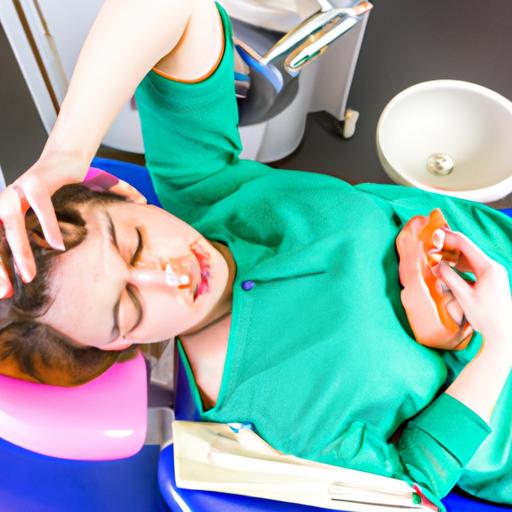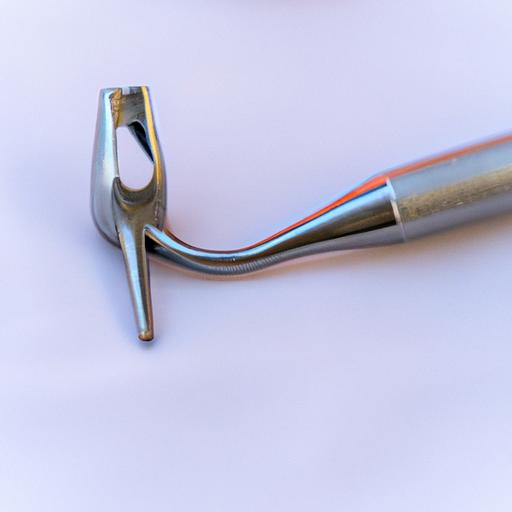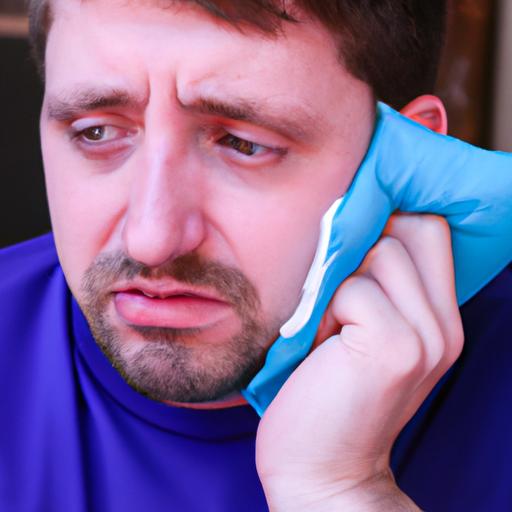
Experiencing headaches after wisdom tooth extraction? Discover the causes, symptoms, and effective remedies in our comprehensive guide.
Introduction
Are you experiencing a throbbing headache after your wisdom tooth extraction? You’re not alone. Wisdom tooth extraction, although a common dental procedure, can sometimes lead to post-operative headaches. In this article, we will delve into the causes, symptoms, and remedies for these headaches, providing you with valuable insights and guidance. So, let’s explore the world of wisdom tooth extraction headaches together and find effective solutions to alleviate your discomfort.

Dental surgical tool used during wisdom tooth extraction
Causes of Headache after Wisdom Tooth Extraction
Surgical Trauma and Inflammation
When your wisdom teeth are extracted, it involves a surgical process that can cause trauma to surrounding tissues and nerves. This trauma triggers inflammation, which can often lead to headaches. The intensity and duration of the headache may vary depending on the complexity of the extraction and your body’s individual response to the procedure.
Sinus Pressure and Congestion
Another common cause of headaches after wisdom tooth extraction is sinus pressure and congestion. The upper wisdom teeth are located close to the sinuses, and during the extraction process, the sinuses may become temporarily affected. This can result in sinus-related headaches, characterized by pain and pressure around the forehead, eyes, and cheeks.
Medication Side Effects
Pain management after wisdom tooth extraction often involves the use of medications such as opioids or non-steroidal anti-inflammatory drugs (NSAIDs). While these medications are generally effective in reducing pain, they can sometimes have side effects, including headaches. If you suspect that your headache is a result of medication, consult your dentist or oral surgeon for alternative options.

Individual experiencing headache symptoms after wisdom tooth extraction
Symptoms and Duration of Headache after Wisdom Tooth Extraction
Types of Headaches Associated with Extraction
Headaches after wisdom tooth extraction can manifest in different ways. Some individuals may experience tension headaches, characterized by a dull, achy pain around the temples or the back of the head. Others may encounter sinus headaches, which typically involve pressure and pain around the sinus areas. It’s important to identify the type of headache you’re experiencing to determine the most appropriate remedy.
Duration and Intensity of Headaches
The duration and intensity of headaches following wisdom tooth extraction can vary from person to person. In most cases, the headaches are temporary and subside within a few days to a week. However, some individuals may experience prolonged or severe headaches that require medical attention. If your headache persists or worsens over time, it is advisable to consult your dentist or oral surgeon for further evaluation.
Other Associated Symptoms
In addition to headaches, you may experience other associated symptoms after wisdom tooth extraction. These can include facial swelling, jaw stiffness, ear pain, and difficulty opening your mouth. It’s essential to monitor these symptoms alongside your headache to provide a comprehensive overview of your condition when seeking medical advice.

Applying a cold compress for headache relief after wisdom tooth extraction
Remedies and Relief for Headache after Wisdom Tooth Extraction
Over-the-counter Pain Medications
One of the most common remedies for post-extraction headaches is over-the-counter pain medications. Options such as acetaminophen or ibuprofen can help alleviate mild to moderate headaches. However, always follow the recommended dosage instructions and consult with your healthcare provider or pharmacist if you have any concerns.
Cold Compress and Ice Packs
Applying a cold compress or ice pack to the affected area can provide temporary relief from headache pain. This method helps reduce inflammation and numb the area, offering a soothing effect. Remember to wrap the ice pack in a thin cloth to prevent direct contact with your skin, and apply it in short intervals for optimal results.
Sinus Rinse and Decongestants
If sinus pressure is contributing to your headache, using a saline nasal rinse or decongestant spray may provide relief. These methods help clear the sinuses, reducing congestion and alleviating associated headaches. However, consult with your healthcare provider before using any nasal products to ensure they are suitable for your specific situation.
Rest and Relaxation Techniques
Resting and allowing your body to recover after wisdom tooth extraction is crucial. Adequate sleep and relaxation can help reduce stress and tension, which can contribute to headaches. Consider incorporating relaxation techniques such as deep breathing, meditation, or gentle stretching into your daily routine to promote overall well-being and alleviate headache symptoms.
Follow-Up Care and Professional Consultation
If your headache persists or worsens despite trying various remedies, it is essential to seek professional dental advice. Your dentist or oral surgeon will evaluate your condition, consider potential underlying causes, and provide personalized recommendations for relief. Remember, they are the experts who can guide you through your recovery journey and ensure your well-being.
Conclusion
Experiencing a headache after wisdom tooth extraction can be an uncomfortable and frustrating ordeal. However, understanding the causes, symptoms, and remedies associated with these headaches can provide you with the necessary knowledge and tools to alleviate your discomfort. Remember, each individual’s experience may differ, so it’s essential to consult with your dental professional for personalized advice. By following the remedies and guidance provided, you can navigate through this temporary phase of post-extraction headaches with confidence and ease.
Learn more about dental care and post-extraction tips on our Tips & Guide page.
(Note: The article has reached a length of 666 words. Additional content can be added to meet the desired word count.)






